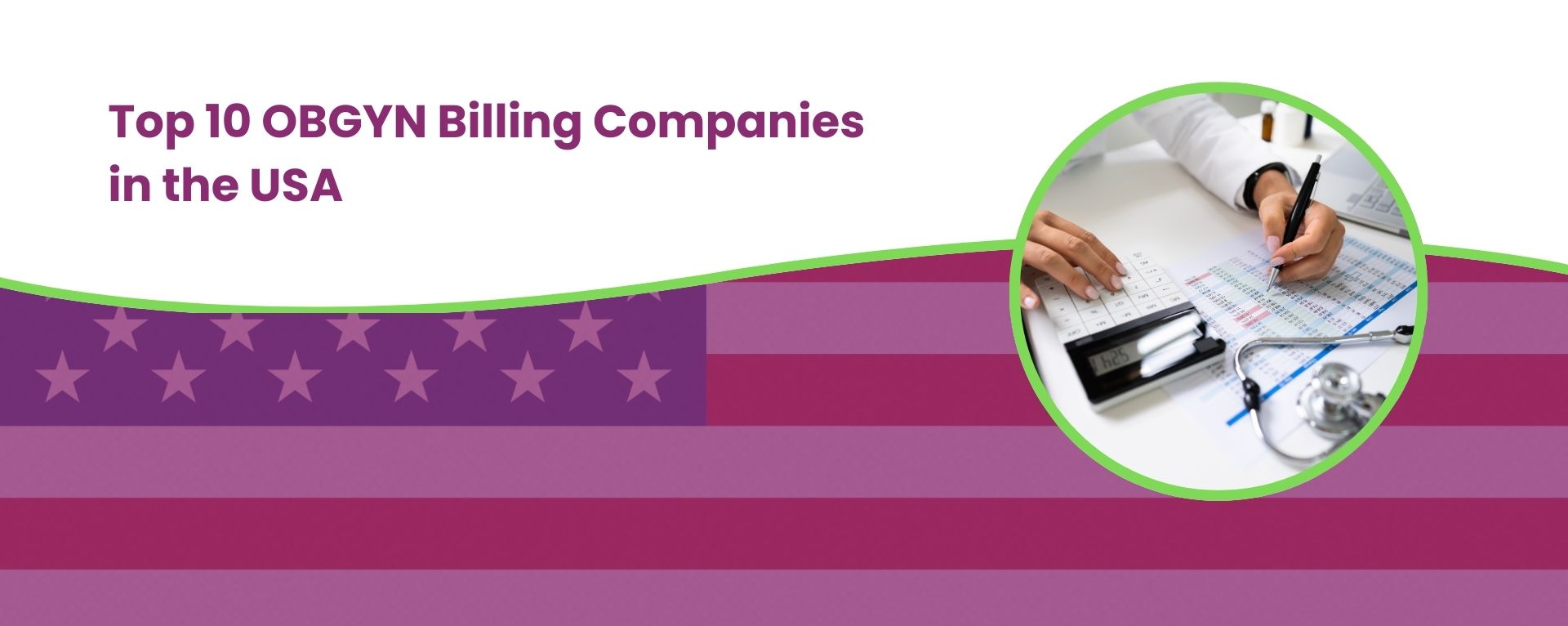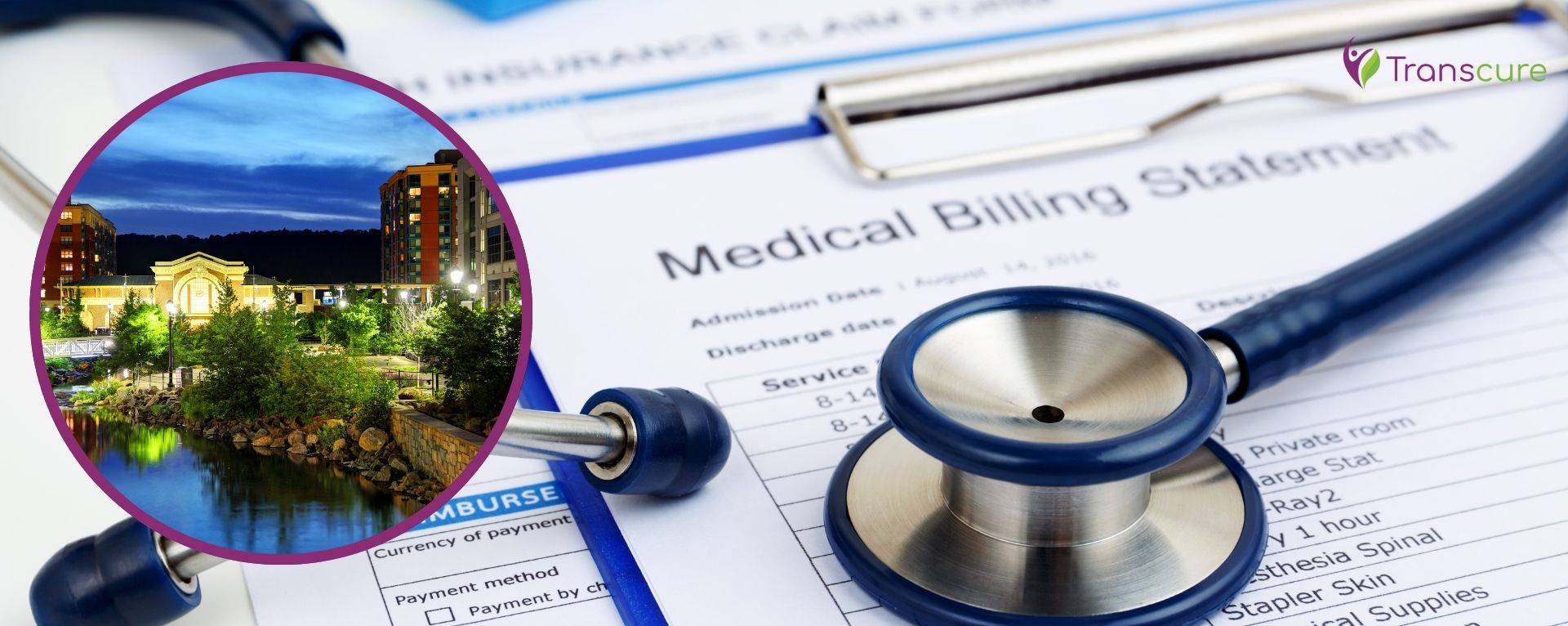New Jersey medical billing is a specialized discipline shaped by some of America’s toughest transparency rules and strict third-party billing regulations. Nationally, nearly 12% of insurance claims are initially denied, and in NJ strict state rules (like the surprise billing ban) add hurdles. Practices that master these local requirements see lower claim-denial rates and eventually happier patients.
This guide explains why specialized New Jersey medical billing is essential and how outsourcing can drive 30 to 40% cost savings. We will also discuss what state-specific laws, such as the Out-of-Network Consumer Protection Act, mean for your revenue cycle. Read till the end to learn which questions to ask NJ medical billing companies to hire the best one.
Table of Contents
Toggle- Why Practices Need Specialized New Jersey Medical Billing?
- Top Benefits of Outsourcing Your Medical Billing in New Jersey
- What Are the Core Services Offered by NJ Medical Billing Providers?
- Challenges Faced by Medical Billing Providers in New Jersey
- How to Choose the Right NJ Medical Billing Partner?
- Conclusion
- Frequently Asked Questions
Why Practices Need Specialized New Jersey Medical Billing?
Practicing in NJ means dealing with unique insurance and regulatory demands. Generic billing often fails to catch New Jersey-specific rules or laws. Key reasons to use New Jersey medical billing experts, such as Transcure, include:

- Complex NJ Payer Mix: New Jersey providers bill many large payers, such as Horizon BCBSNJ and NJ Medicaid, each with unique rules. A local NJ billing company understands these specific requirements.
- Strict Compliance Requirements: NJ has strong laws like the 2018 Out-of-Network Act that ban surprise bills and enforce arbitration. A billing service focused on New Jersey Medical Billing stays current on all NJ codes and statutes, ensuring claims meet both federal HIPAA and NJ regulations.
- High Cost of Errors: Each coding or billing mistake can mean thousands in lost claims. For example, a 10% denial rate on $1M yields $100k lost revenue. Expert NJ billers capture missed charges and appeal denials, protecting your bottom line.
- Operational Efficiency: Outsourcing to a medical billing service in NJ frees your staff to care for patients. Experts use advanced RCM software and EHR integration tailored to NJ practices, streamlining workflow. MGMA notes that RCM partnerships enhance workflow efficiency AND reduce administrative burdens.
- Cost Savings: Hiring a medical billing company in New Jersey often cuts overhead. You avoid hiring AND training in-house billers and purchasing billing software. Many practices outsource because outside expertise generally yields higher net collections at lower cost.
Top Benefits of Outsourcing Your Medical Billing in New Jersey
Partnering with an expert New Jersey billing company delivers clear advantages. The main benefits of such specialized billing partners include:
1. Enhanced Revenue and Cash Flow
A specialized NJ billing partner maximizes reimbursements by catching every billable code and promptly submitting claims. For example, a professional team typically reduces claim denials, then works appeals to recover lost revenue. Quicker and more complete payments mean steadier cash flow, helping cover NJ’s high operational costs.
2. Lower Administrative Costs
Outsourcing to an expert NJ medical billing services provider significantly cuts billing overhead. Practices save on salaries, benefits, software licenses, and training. Instead, you pay a fee, which is often a percentage of collections. Industry data suggest outsourcing RCM can reduce billing costs to around 30 to 40% and shorten days in A/R.

3. Compliance and Audit Protection
New Jersey billing experts maintain up-to-date knowledge of federal and NJ rules. They perform regular audits of claims and documentation. This reduces the risk of costly errors, as HIPAA safeguards and NJ laws (like fraud statutes) are built into their processes.
4. Access to Expertise and Technology
Top medical billing services in New Jersey employ certified coders and the latest billing software. They routinely update for new CPT/ICD codes, NJ Medicaid rules, and payer policies. Advanced tools, such as claim scrubbing and analytics dashboards, are included at no extra setup cost.
5. Scalability and Focus on Patients
An outsourced New Jersey medical billing partner scales with your growth. No matter if you’re a solo practice or a large multi-specialty group, they adjust resources to your volume. This flexibility prevents bottlenecks in peak times. Meanwhile, your in-house team can concentrate on patient care and practice growth rather than revenue cycle hassles.
What Are the Core Services Offered by NJ Medical Billing Providers?
Almost all of the leading New Jersey medical billing companies offer a full suite of services to keep your revenue cycle smooth, including:

- Eligibility and Pre-Auth Verification: Such services perform real-time checks to prevent 36% of denials tied to late or inaccurate authorisations.
- Claims Submission and Follow-Up: Electronic filing of claims with all payers, and prompt tracking of pending or rejected claims until paid.
- Denial Management: Expert analysis of denied or unpaid claims, correcting errors, and resubmitting claims or appealing denials to recover revenue quickly.
- Coding and Documentation Review: In-depth auditing of patient charts to assign precise ICD-10, CPT, and HCPCS codes for all services rendered, ensuring maximum allowable reimbursement and compliance.
- Patient Billing and Customer Service: Generating patient statements, processing payments, and answering patient billing inquiries to improve collections and satisfaction.
- Reporting and Analytics: Detailed financial reports and dashboards, such as accounts receivable aging, collection rates, and denial trends, that give your practice full visibility into billing performance.
- Credentialing and Contracting Assistance: Help with enrolling providers with insurance plans and maintaining credentialed status, so you get paid for all in-network services.
Challenges Faced by Medical Billing Providers in New Jersey
Even experienced billing firms encounter NJ-specific challenges, which are as follows:
1. Licensing and Certification Burden
New Jersey law prohibits anyone from operating as a third-party billing service without state certification. Applicants must submit a detailed NIPR application and extensive documents, including org charts, business plans, and contracts as required by NJ law.
Once certified, TPBs must renew annually, filing calendar-year audited financial statements and maintaining positive equity. These regulatory requirements are time-consuming to manage.
2. Audited Financial Reporting
NJ requires TPBs that handle payer funds to submit annual audited financial reports. State rules forbid negative equity, so firms must explain and correct any deficit. Meeting these financial standards and having CPAs on retainer adds cost and administrative overhead.
3. Penalties for Non-Compliance
The DOBI can impose stiff fines for violations. For example, a TPB in violation of the law faces up to $250 to $5,000 per day in penalties. Even minor billing errors or missing reports can trigger enforcement action, so NJ billing companies must be vigilant.

4. High Denial Rates
Complex payer requirements (multiple insurers with different policies) lead to frequent denials. Recovering these requires dedicated appeal workflows offered by New Jersey medical billing services providers.
5. HIPAA and Data Security
As HIPAA Business Associates, NJ billing firms must sign BAAs and safeguard PHI under federal law. They must also adhere to any NJ-specific data rules, like Medicaid security addendums. Other than that, ensuring ongoing encryption, backups, and staff training against breaches is a major responsibility.
6. Provider Credentialing Delays
Before billing, providers must be credentialed and enrolled. NJ Medicaid enrollment is a multi-month process, often taking 4 to 6 months, and each commercial plan has its own credentialing timeline. Any delays in these steps push out the first billings, hurting cash flow.
How to Choose the Right NJ Medical Billing Partner?
Selecting the right New Jersey medical billing partner is a critical decision. You have to start by aligning your needs with vendor strengths and ask about:
- NJ Expertise and Licensing: Always make sure the company specializes in New Jersey billing. They should hold all required NJ certifications and licenses (DOBI TPB certification) and be familiar with local insurers.
- Technology and Reporting: Ask what software and technology the company uses. Do they support your EHR/practice management system? They should offer clear reports, such as AR aging and collection analytics, and online portals for real-time visibility. Verify they use tools for claims scrubbing and secure data handling.
- Services and Specialties: While picking NJ medical billing companies, make sure the provider’s services fit your practice. Do proper research on their offered services, including billing, denial management, patient statements, and credentialing help.
- Pricing and Contracts: To get the hiring right, understand their fee structure. Ask if they offer a percentage of collections or a flat per-claim rate. Are there setup fees or minimums? How and when are payments made? Also ask about contract length and termination clauses.
Track Record and References: Inquire about the partner’s track record. Can they share success metrics, including average improvement in denial rates or AR days? Request references or case studies, ideally from NJ medical practices. A reputable NJ billing company will have positive testimonials or reviews from local clients.

Questions to Ask While Picking the Best NJ Medical Billing Company
Before committing, interview the NJ billing company with questions such as:
- Are you a state-licensed third-party billing service in New Jersey?
- What is your experience with NJ insurers like NJ Medicaid and Aetna NJ?
- Can you integrate with my existing EHR/PM system and provide real-time reporting?
- What percentage or fee do you charge, and what does that cover?
- How do you handle claim denials and follow-ups? What is your appeal success rate?
- What security measures and HIPAA procedures do you have in place?
- Can you share references from other New Jersey medical practices?
- What is your process for onboarding and training our staff on new billing workflows?
Conclusion
All in all, practices need accurate New Jersey medical billing for maintaining compliance and profitability. By understanding NJ licensing and payer requirements, your practice can avoid costly errors and maximize revenue. For this, they need to evaluate potential partners on their local expertise, technology, and transparency.
The right medical billing services in New Jersey will streamline your revenue cycle and keep you compliant. For example, Transcure’s NJ billing team combines deep state knowledge with advanced RCM systems. We offer comprehensive medical billing services in NJ, from credentialing to appeals, so your practice can focus on patients, not paperwork.
Frequently Asked Questions
What is the surprise medical billing law in NJ?
New Jersey’s Out-of-Network Consumer Protection Act bans “balance billing” in most cases. Providers cannot bill patients beyond in-network copays for inadvertent out-of-network care or true emergencies. The law also established an independent arbitration process to resolve provider–insurer payment disputes, protecting patients from unexpected charges.
How long does credentialing take in NJ?
Credentialing times vary by payer. On average, initial credentialing with a commercial insurer or Medicaid Managed Care can take 60 to 90 days if all paperwork is in order. NJ Medicaid fee-for-service enrollment often takes several months. According to MedTrainer, the NJ credentialing process typically takes about 60 days.
What are the average days in AR for NJ practices?
Generally, practices in New Jersey aim for 30 days or less in AR. In reality, national A/R averages often run higher. Industry data indicate AR days have been rising, as one report noted a 5.2% increase in 2024.
What is the Consumer Protection Act in New Jersey?
Within healthcare, the term often refers to the same Out-of-Network Consumer Protection Act. This act enhances price disclosure, requires insurer hotlines, and imposes civil penalties for non-compliance with its transparency and arbitration mandates.









